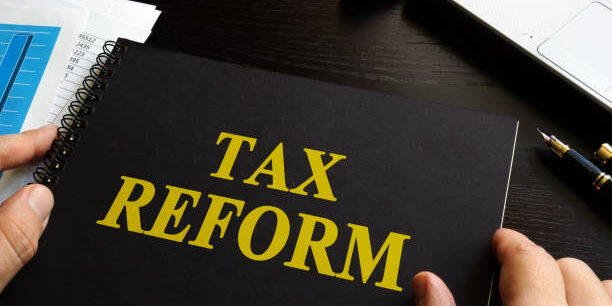Nigeria has cut down the amount of money it uses to service debts, spending less than 50% of its revenue on debt servicing, according to Mr. Taiwo Oyedele, Chairman of the Presidential Fiscal Policy and Tax Reforms Committee.

Speaking as keynote speaker at PwC’s Executive Summit on Nigeria’s Tax Reform in Lagos on Monday, Oyedele said that before the current economic reforms, the country was using almost 97% of its revenue to service debt.
“We Were On the Road to Zimbabwe”
Oyedele explained that Nigeria’s economy was on a dangerous path:
“Without these reforms, Nigeria would have looked like Zimbabwe or Venezuela. Bigger deficits, more naira printed, and we would have been spending over 100% of our revenue to service debts. You could hold money and still not find fuel to buy.”
To illustrate his point, he held up a 100 trillion Zimbabwean dollar note, explaining it was once only enough to buy a loaf of bread.
The Turnaround So Far
According to him, the reforms have already started yielding results:
External reserves grew from under $4 billion to over $20 billion.
Tax-to-GDP ratio improved from under 10% to 13.5% in two years.
Budget deficit is declining, with more funds going into infrastructure.
The government has stopped “printing money to spend” and is paying down old debts.
What If Reforms Started 10 Years Ago?
Oyedele noted that Nigeria could have been a $1 trillion economy if such reforms had been implemented a decade earlier:
“If these reforms had been done 10 years ago, petrol would cost under ₦300 per litre, and the exchange rate would be under ₦300 to the dollar.”
Tax Reforms to Let Small Businesses Breathe
He explained that under the new tax regime:
*Employees earning below ₦800,000 yearly are exempted from personal income tax.
Only the top 3% of operators in the informal sector are expected to pay taxes; the rest are exempt to allow them grow.
*New rules ensure companies controlled or effectively managed from Nigeria will be taxed in Nigeria, even if registered abroad.
*Indirect transfers (like selling a foreign company that owns a Nigerian firm) will also attract Nigerian tax.
Call for Partnership
Sam Abu, PwC West Africa Regional Senior Partner, said reforms alone cannot solve Nigeria’s economic challenges:
“Real change requires partnership — government, business leaders, and private sector must work together with integrity and optimism.”Bottom line: Nigeria’s fiscal picture is improving, but stakeholders say the reforms must be followed through — and everyone, from government to businesses, has a role to play.